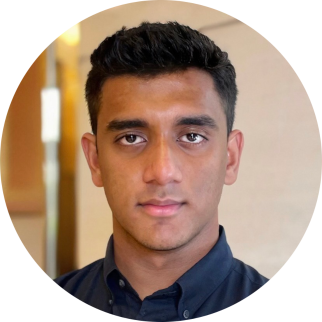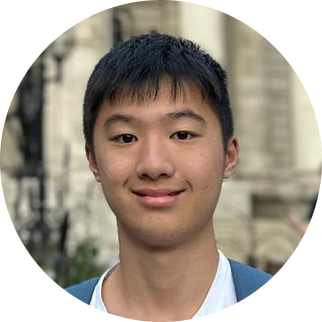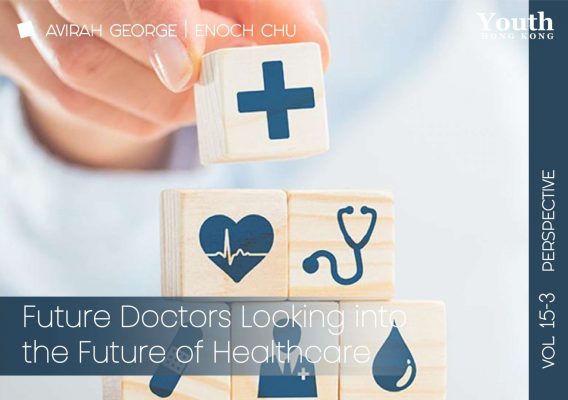//vol.15-3 Perspective
Future Doctors
Looking into the Future of Healthcare
by Avirah George and Enoch Chu
What we believe is that public health can have a significant impact on individuals, communities, and societies at large.

 Avirah George and Enoch Chu, both students at South Island School, share their insights on the future of healthcare and how to make meaningful contributions to pressing health issues.
Avirah George and Enoch Chu, both students at South Island School, share their insights on the future of healthcare and how to make meaningful contributions to pressing health issues.
We are aspiring medical practitioners and healthcare workers, still in school, but with a strong desire to share our knowledge and passion acquired through work placements and research by establishing a medical society at the level of school. This was born out of witnessing recent challenges and changes in the medical field, ranging from an unprecedented global health emergency to new consultation models such as telemedicine. We believe that a society like this can foster an environment where we can share insights, exchange ideas, and learn from each other, even before we undertake formal university and medical education.
In today’s rapidly advancing society, where technology reaches new heights every day and information is delivered on an unprecedented scale, challenges arise from the unsustainability of industrialized healthcare, in which the idea of patients merely being 『health consumers』 has become outdated. The ever-changing, research-rich medical community informs us about the importance of finding optimal and new treatments that work best for patients. This highlights the importance of adopting an evidence-based approach to medicine, ensuring that patients receive high-quality healthcare services.
What we believe is that public health can have a significant impact on individuals, communities, and societies at large. We are, therefore, eager to inspire the younger generation to delve into the field of public health and make meaningful contributions to pressing health issues by focusing on their root causes and advocating for effective public policies.
An example of an ongoing public health battle in Hong Kong that warrants attention is the alarming prevalence of tobacco product consumption, particularly cigarettes. In our quest for viable solutions to this matter from esteemed university professors and doctors, we observed a striking commonality in their insights: it requires us to look beyond treating the individual consequences of cigarette consumption. Instead, it is crucial to combat the issue at its core by advocating for policy changes that could effectively curb the rise of tobacco use, which is intricately intertwined with socioeconomic factors, cultural influences, and the practices of the tobacco industry.
By actively engaging in transformative public health initiatives, we can cultivate evidence-based policies and maximize the power of modern communication channels to raise awareness, ignite insightful discussions, and drive positive change. This approach holds great promise for the future of healthcare, with healthier communities and improved overall population well-being.
Furthermore, when looking into the provision of high-quality healthcare, patients need to be 『health producers』. This shift in perspective means that both communities and individuals have to take ownership of their health and wellness. One particular global initiative that aims to address this issue is the Global Social Prescribing Alliance. With 80% of consultations predominantly revolving around the social determinants of health, the future of healthcare has to go beyond the biomedical aspects of medicine and extend beyond the walls of hospitals or clinics. This calls for the biopsychosocial model – a central approach that truly encompasses the vast determinants of health for each patient, providing genuine all-round and personalized care.
Having young people’s perspectives on the current age of medicine, as well as its future implications, is vital in the medical field. By sharing our insights and thoughts, we hope to empower anyone interested in medicine and those alike to embrace innovation, think outside the box, and ultimately improve patient care. ⯀
Avirah George and Enoch Chu are both Y13 students at South Island School, and both have aspirations to be doctors. Avirah enjoys Muay Thai training and weightlifting and plays in a band. Enoch’s hobbies include playing and teaching piano, as well as playing basketball during his spare time.


